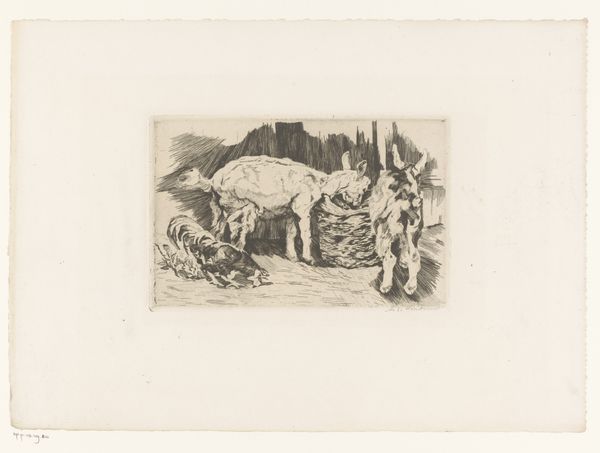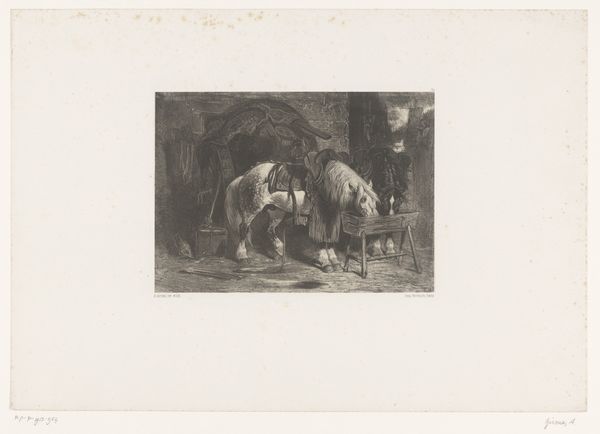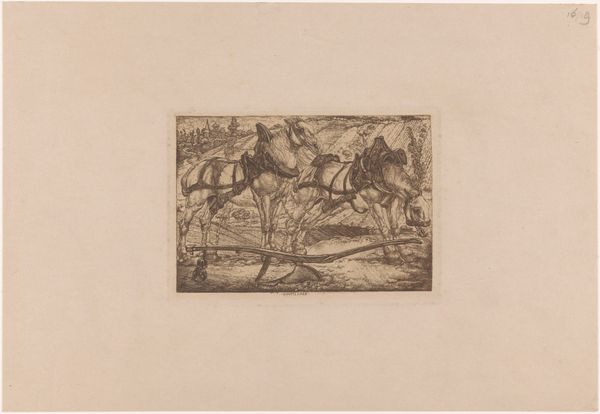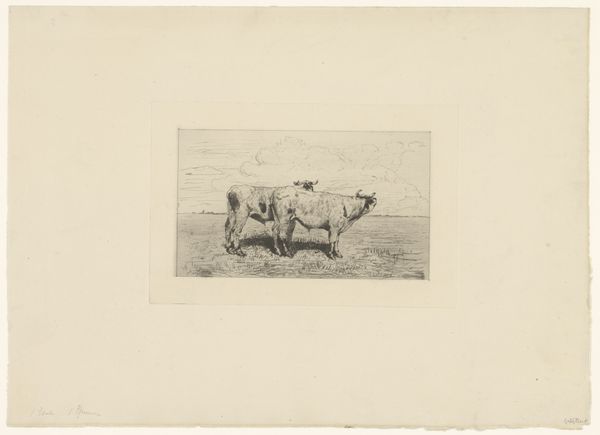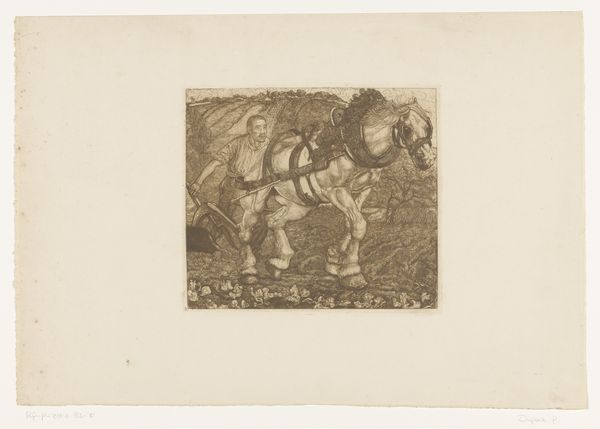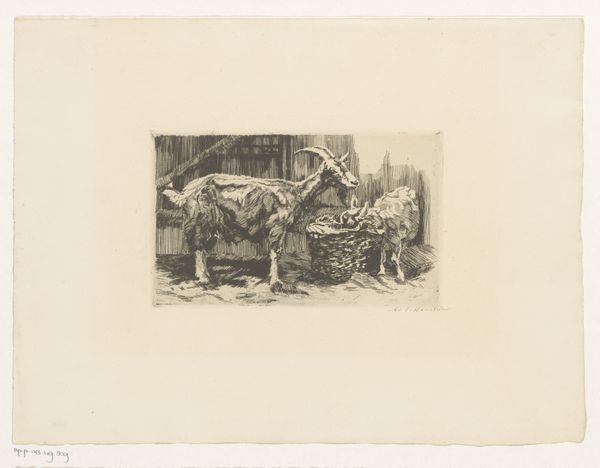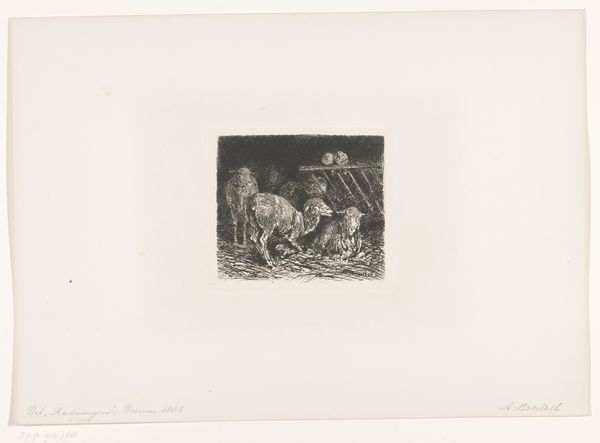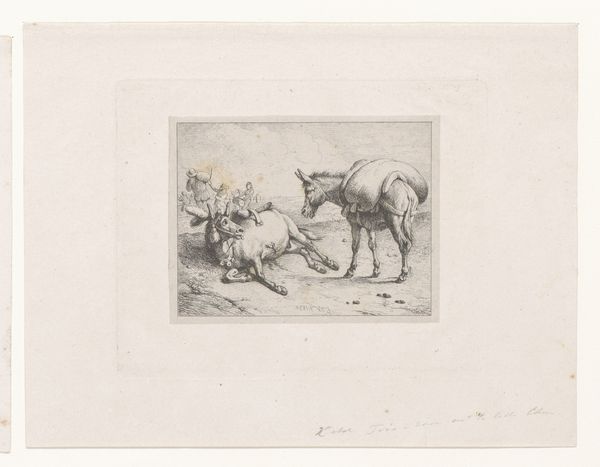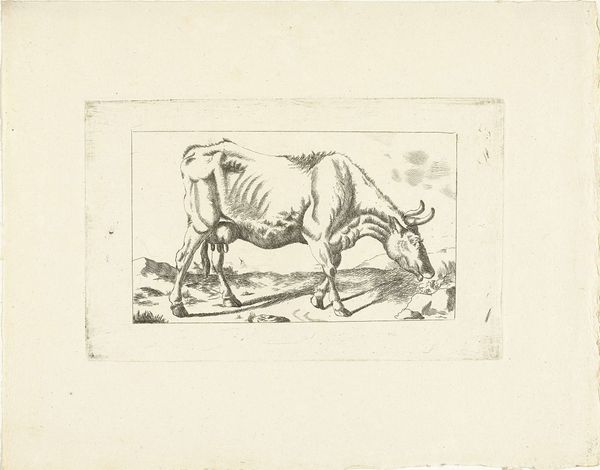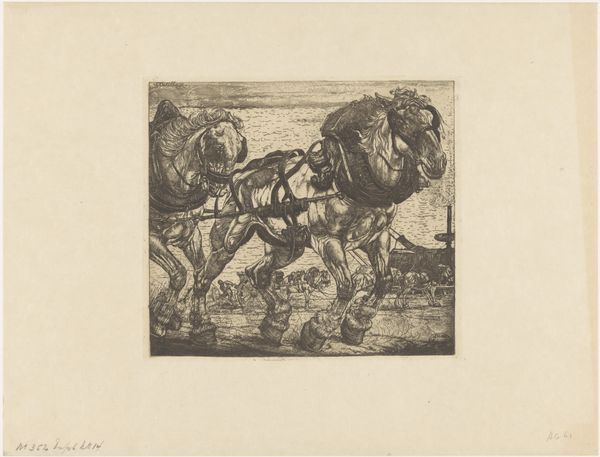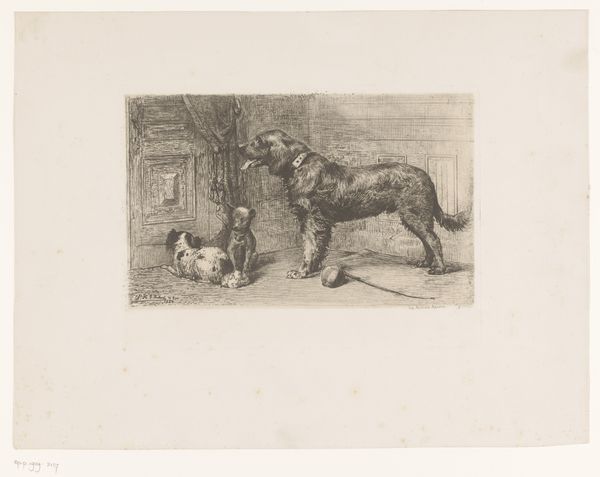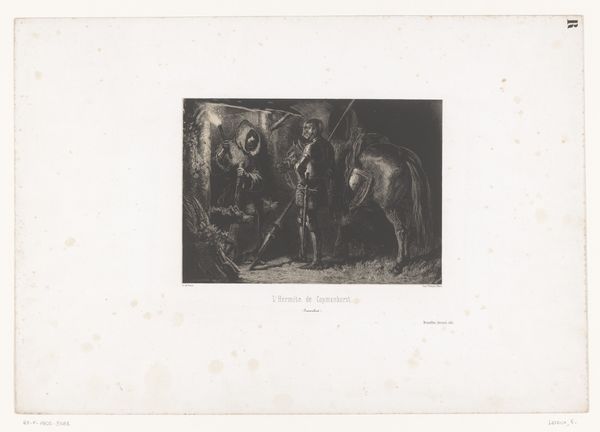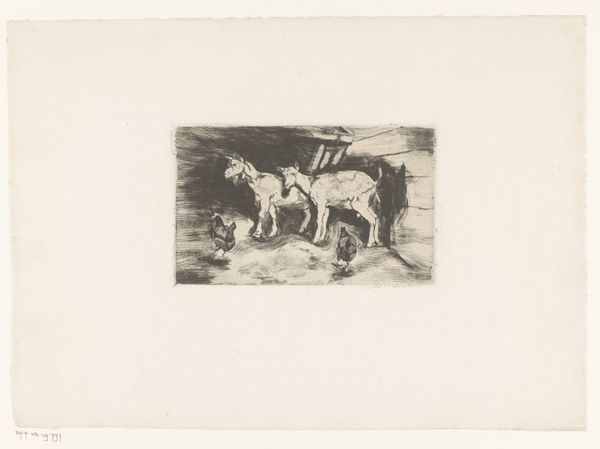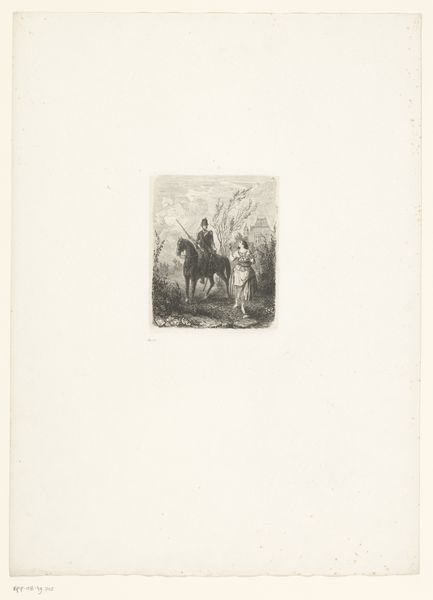
drawing, print, etching, paper, ink
#
drawing
#
16_19th-century
# print
#
etching
#
landscape
#
figuration
#
paper
#
ink
#
genre-painting
#
realism
Dimensions: height 97 mm, width 178 mm
Copyright: Rijks Museum: Open Domain
Johannes Arnoldus Boland made this print, “Man met ezel” - “Man with donkey” - sometime between the late 19th and early 20th century. Boland lived during a period of rapid social and political change in the Netherlands, including industrialization, urbanization, and the rise of new social movements. The image depicts a man resting near his donkey; a seemingly simple pastoral scene, yet it reflects the complex relationships between humans, animals, and labor. The man's relaxed posture contrasts with the donkey’s readiness, highlighting their interdependent roles. In Dutch art, the representation of rural life often carries nostalgic undertones, idealizing a simpler past in the face of modernity. Consider the symbolism of the donkey, often associated with humility and burden-bearing. How does this image speak to the working class and their connection to the land? This piece invites us to reflect on themes of labor, rest, and the quiet dignity of everyday life.
Comments
No comments
Be the first to comment and join the conversation on the ultimate creative platform.
